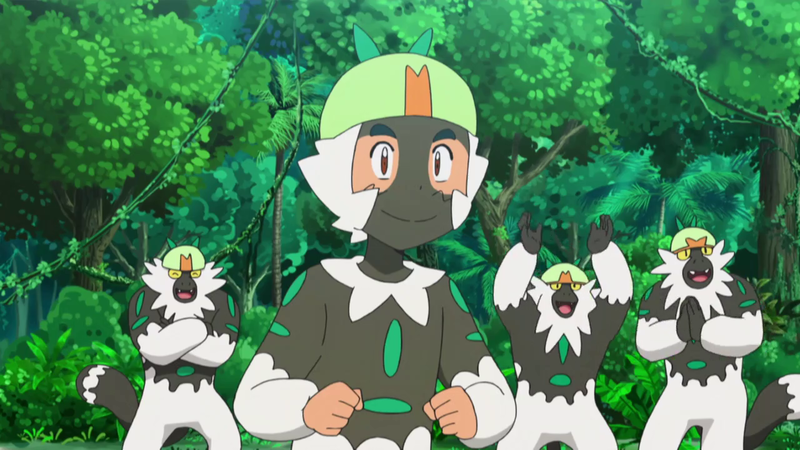We all remember that first banned Pokemon episode, right? All the way back in season one, that episode sent Japanese children into epilaptic seizures with its flashing lights, and was promptly banned as a result, never screening in the West.
Other episodes, however, have only been screened in Japan for other more cultural reasons, and that seems to be the case with a new episode that hasn’t appeared in the U.S – most likely due to avoid accusations of blackface.
As Gamerant reports, the episode sees lead character Ash dressing up like a Passimian, and it’s here that things get delicate, as he appears with a face painted brown to match the Pokemon. To avoid any controversy in the U.S. or other Western markets, where the disgraceful practice of blackface still casts a long shadow, the episode has seemingly been left on the shelf.

Ash dressing up like a Passimian has kept the episode off Western television due to blackface comparisons
With just under 1000 episodes at last count, it’s rare for an episode to have been banned or left unaired, with only a dozen or so being kept behind closed doors, or kept off the air temporarily in the wake of tragedies, including two episodes pulled after the 9/11 terrorist attacks.
It’s not the first brush that Pokemon has had with accusations of blackface, of course, with first-generation creature Jynx famously coming under fire for its, well, slightly problematic appearance. Despite having possibly been based on a Japanese fashion style that was popular in the mid-90s, Jynx’s design definitely strayed over a line, and the character’s skin tone was soon changed from black to purple to rectify things.
Love Film & TV?
Get your daily dose of everything happening in music, film and TV in Australia and abroad.
If you’re intent on finding out what happened in this latest banned episode of the Pokemon series, you’ll have to settle for a subtitled Japanese version – although we’re happy just assuming that Ash stumbled across some wild Pokemon and helped them out of some sort of situation – rather than actually catching them and forcing them to fight for fame and glory, as we’re shooting for in the games.

































